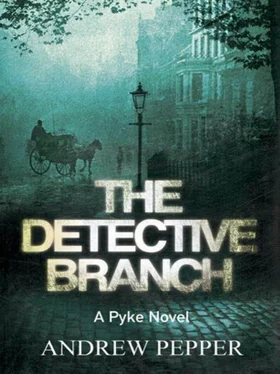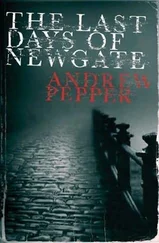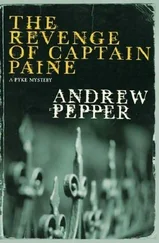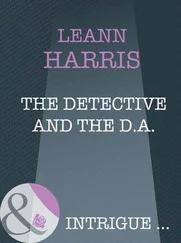Andrew Pepper - The Detective Branch
Здесь есть возможность читать онлайн «Andrew Pepper - The Detective Branch» весь текст электронной книги совершенно бесплатно (целиком полную версию без сокращений). В некоторых случаях можно слушать аудио, скачать через торрент в формате fb2 и присутствует краткое содержание. Жанр: Исторический детектив, на английском языке. Описание произведения, (предисловие) а так же отзывы посетителей доступны на портале библиотеки ЛибКат.
- Название:The Detective Branch
- Автор:
- Жанр:
- Год:неизвестен
- ISBN:нет данных
- Рейтинг книги:3 / 5. Голосов: 1
-
Избранное:Добавить в избранное
- Отзывы:
-
Ваша оценка:
- 60
- 1
- 2
- 3
- 4
- 5
The Detective Branch: краткое содержание, описание и аннотация
Предлагаем к чтению аннотацию, описание, краткое содержание или предисловие (зависит от того, что написал сам автор книги «The Detective Branch»). Если вы не нашли необходимую информацию о книге — напишите в комментариях, мы постараемся отыскать её.
The Detective Branch — читать онлайн бесплатно полную книгу (весь текст) целиком
Ниже представлен текст книги, разбитый по страницам. Система сохранения места последней прочитанной страницы, позволяет с удобством читать онлайн бесплатно книгу «The Detective Branch», без необходимости каждый раз заново искать на чём Вы остановились. Поставьте закладку, и сможете в любой момент перейти на страницу, на которой закончили чтение.
Интервал:
Закладка:
‘I can give you George Culpepper. In fact, I can serve up George Culpepper’s mob on a plate.’
Pyke could see that the name had scored a hit, but Rafferty was still a long way from being convinced.
‘Like I said, big man, there’s nothing you can do for me while you’re rottin’ in this place.’
‘That’s why I need your help.’
Conor Rafferty nodded, as though he’d been expecting this. ‘Hell’d freeze over before a Rafferty went out of his way to help the law.’
‘How can I be the law if I’m locked up?’
Rafferty scratched his head. ‘You have a point there, I’ll grant you.’
‘Then you’ll at least listen to what I’ve got to say.’
‘I’ll listen, but at this precise moment, that’s all I’m prepared to do.’
‘You know I grew up on the same street as Culpepper? We used to call him Little Georgie. For the first seven years of his life, he slept in a coal-shed with a pack of dogs. He learnt to bark before he could talk.’
That, at least, made Rafferty smile.
On Monday morning it was raining. In fact, it had been raining almost continuously since the previous afternoon and the water had gathered in sludge-coloured puddles, carriages and omnibuses spraying brown slush on to the pavements, meaning that pedestrians had to hug the buildings if they didn’t want to get wet. The guards had searched Pyke as he’d left the felons’ room and the only item they let him take with him was a skin filled with porter, or so he’d told them; they also hadn’t noticed a hairpin that he’d smuggled out in his mouth. To get from the station house to the courtroom meant crossing the road but nothing was being left to chance; Pyke was shackled in leg-irons and handcuffs and escorted by half a dozen police constables and an inspector, who carried his pistol at all times. Neither Wells nor Pierce had been back to visit him and he had spent his last night in the cell quietly contemplating all the things that could go wrong. A queue had formed, and it snaked out of the courthouse along Bow Street as far as the Brown Bear. Pyke had already been told by the gaoler to expect quite an audience; after all, as he put it, it wasn’t every day folk got to see a copper get his just desserts. Shielded from the onlookers by a phalanx of uniformed constables, they went in to the building using a private entrance and followed a series of narrow passageways that led to the courtroom itself.
Pyke took his place on a small, elevated platform surrounded by a wooden rail on one side of the room, across from the bench. There was a gilt-framed mirror and a large clock on the wall behind him. The spectators had gone quiet when he’d first entered the room, but now there was an excited buzz. Pyke had told Felix not to come, but he knew that his son would probably be there. Perhaps Sarah would come, too, even though she had been given the same instructions. He surveyed the faces gathered in front of him and, to his relief, he didn’t see anyone he knew except for Whicher and Eddie Lockhart, who were deep in conversation.
The constables who’d escorted him from the station house congregated on one side of the dock. Pyke hadn’t bothered to ask whether he might be unshackled because he knew there was no point. Though no one had said so explicitly, it was clear that the constables, turnkeys and gaolers had been instructed not to let him out of their sight. Pyke studied the faces of the crowd again, this time hoping he might see Conor Rafferty in the room. Instead he saw Sarah Scott and then Felix; they were standing together. Pyke had no idea they had even met, but when he caught Sarah’s eye, he smiled and mouthed the words ‘thank you’. It was regrettable that they had come but he had known they would. Briefly he wondered how they’d react when the trial got under way. It would be especially hard on the lad, Pyke mused; hard but unavoidable.
‘All set, then?’ His lawyer, Geoffrey Quince, QC, had aged since Pyke had first met him, but in a distinguished manner. Quince’s serene expression indicated he had no idea that another prosecution witness had been added to the list.
‘The Attorney-General is conducting the prosecution himself,’ Quince was explaining, ‘with assistance from Worthington and Chambers.’
As he stood there and numbly listened, Pyke felt for the wineskin he’d concealed under his waistcoat. It would soon be over, one way or the other. He felt closer to the noose than ever.
Soon afterwards the twelve jurors strode into the room and took their allotted seats, just below the bench.
At exactly nine o’clock, the door nearest the public entrance opened and the magistrate, George James Stevenson, JP, entered the room, closely followed by another man wearing robes and a wig, and then a procession of dignities, including Walter Wells and, as it turned out, Benedict Pierce, who hobbled in and was last to take his seat. Wells and Pierce were not sitting next to one another, and while Pierce made a point of not looking over at Pyke, Wells met his eyes almost immediately and gave an encouraging smile. For a moment, Pyke wondered whether this meant he’d been able to get to Villums.
As the chief magistrate banged the gavel to bring the room to order, Pyke looked again for any sign of Rafferty.
‘The jury for our Lord the King upon their oath do present that Detective Inspector Pyke, late of Scotland Yard and Islington in the county of Middlesex, on the fourteenth day of July eighteen hundred and forty-four, did with malice aforethought commit the wilful murder of William Sharp and that on the twenty-second day of March eighteen hundred and forty-four did steal the Saviour’s Cross and other items from the private residence of the Archdeacon of London. How do you plead?’
All eyes in the room turned to him. Pyke waited for a moment or two then said, ‘Not guilty.’
As the magistrate swore in the twelve jurors, Pyke could feel his heart thumping. Briefly he caught a glimpse of Felix, straining on tiptoes to see what was happening, but he still couldn’t see Rafferty. He smiled at the lad, trying to exude a confidence he didn’t feel.
‘I now call on the Attorney-General, Nicolas Tomlinson, QC, to present the case for the prosecution.’
Just as the chief magistrate finished speaking, Pyke noticed a man he didn’t recognise, with a cloth hat pulled down over his face, step out of the crowd.
Mr Roland Dunn, a shoemaker from Clerkenwell who had queued through the night to ensure he secured a place for himself at the front of the public viewing area, saw everything and later gave a full statement to the police.
A rough-looking gentleman wearing a hat of some sort and a black, velveteen shooting jacket had pushed his way through the crowd of spectators and, striding forcefully, had ducked under the rail and approached the dock, where the defendant was standing. It had all happened quickly. Too quickly, he stressed, for anyone to have intervened. No one saw the pistol in the man’s hand until the last minute; he had concealed it under his jacket. The man screamed the defendant’s name, as though angry at him, raised the pistol and fired. The blast, much louder than he’d been expecting, echoed around the room. The defendant, Pyke, collapsed on the stand clutching his stomach. The ball-shot had hit him squarely in the gut and blood was pumping from the wound. The air in the room was thick with people’s shouts and screams. The gunman then made for the door behind the dock that the defendant had first appeared from; a police constable moved to block his path but the gunman had raised his pistol, as if to fire, and the policeman had to let him pass. All of this happened, the shoemaker said, in the space of a few seconds. After the gunman had fled the room, pandemonium broke out.
Читать дальшеИнтервал:
Закладка:
Похожие книги на «The Detective Branch»
Представляем Вашему вниманию похожие книги на «The Detective Branch» списком для выбора. Мы отобрали схожую по названию и смыслу литературу в надежде предоставить читателям больше вариантов отыскать новые, интересные, ещё непрочитанные произведения.
Обсуждение, отзывы о книге «The Detective Branch» и просто собственные мнения читателей. Оставьте ваши комментарии, напишите, что Вы думаете о произведении, его смысле или главных героях. Укажите что конкретно понравилось, а что нет, и почему Вы так считаете.












